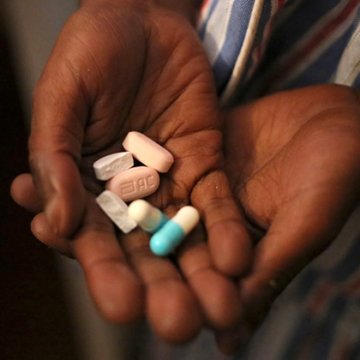- About
- Topics
- Picks
- Audio
- Story
- In-Depth
- Opinion
- News
- Donate
-
Signup for our newsletterOur Editors' Best Picks.Send
Read, Debate: Engage.
South African constitutional court judge Justice Edwin Cameron has written a moving account of his experiences with HIV as the battle to destroy stigma in South Africa continues.
"I started on anti-retrovirals at a time when the treatment was available only for those who could afford it. I was using a third of my judge’s salary to pay for medication. Today, treatment is affordable. The main challenges to its availability and accessibility are infrastructural and social – chiefly, stigma."
"
South Africa introduced free ARV medication more than 10 years ago. This came at a heavy cost – including a lengthy battle with former president Thabo Mbeki and his Aids denial policies. Although today treatment is available, and although more than 3 million South Africans now access it, the number of new infections is still distressingly high. Almost 200,000 people a year in my country are still dying of Aids today.
Stigma remains a central problem – fear of the disease, fear of people with the disease, rejection, ostracism and discrimination. Add to this our attitudes about masculinity in South Africa and many other parts of the world: men’s belief that they are invincible, that they have a right to sex and should have access to women’s bodies, that sex with protection is not real sex, that they are no longer “real men” if they become HIV-positive, that they’ll be seen as weak if they seek medical attention. It is the behaviour of men, and groups of men, that drives the epidemic.
Not enough is done to ensure men have access to HIV services. Women usually access health facilities during their reproductive years for antenatal and child health services. Men have far fewer opportunities to access health services. Surprisingly, little is done even to engage the men whose partners participate in prevention of mother-to-child transmission programmes. It’s a critical missed opportunity that needs to be addressed urgently.
What impelled me to speak openly about my HIV status, in 1999, was the murder of Gugu Dlamini. She was a young woman living in a poor part of Durban who was stoned to death in the street after she spoke openly on radio about the fact that she was HIV-positive. Her death drove me – a man who was living with protection that she never had – to try to combat stigma."
Today, stigma is undoubtedly declining; many more people know their HIV status, and many more know someone living with HIV. But the insidious effects of stigma and harmful ideas about manhood continue.
In September, UN member states ratified the sustainable development goals, a framework for global development policy over the next 15 years. The targets include ending the Aids epidemic by 2030.
Let's see what can be done.
